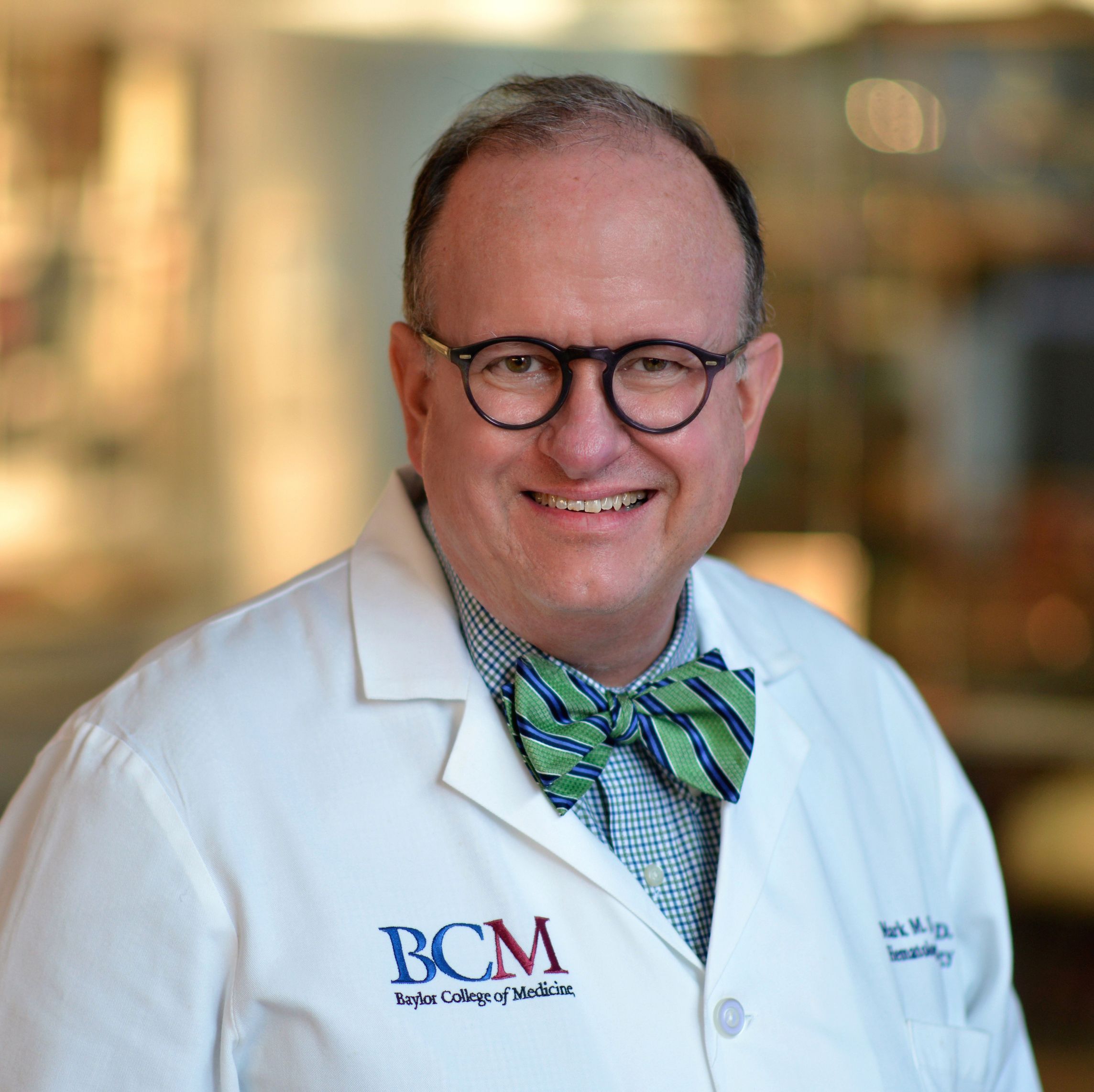Make a gift today to support education, lifesaving research and world-class care. Give Today ➔

Mark M. Udden, M.D., Res. ’80, Fel. ’82, is a professor in the Section of Hematology and Oncology in the Department of Medicine and the Dan L Duncan Comprehensive Cancer Center at Baylor College of Medicine.
A native Texan, Dr. Udden was born in Tyler, Texas. As a geologist’s son, he moved around with his family to several locations before settling in Tulsa, Oklahoma, where he graduated from high school. He earned his Bachelor of Science in life sciences from the Massachusetts Institute of Technology in 1973. He then moved to Dallas, Texas, to attend the University of Texas Southwestern Medical School. He received his Doctor of Medicine degree in 1977.
Having married his wife, Rebecca, 3 months before graduating from medical school, Dr. Udden chose Baylor College of Medicine for his residency, a decision that was in no small part influenced by Dr. Udden’s interview with Edward C. Lynch, M.D., then the vice chair of the Department of Medicine and program director for the Internal Medicine Residency, who would later serve as a mentor to Dr. Udden.
In 1980, he finished his residency and began a fellowship in hematology, also at Baylor. During his fellowship, Dr. Udden rotated through Ben Taub Hospital, Houston Methodist Hospital, the Michael E. DeBakey Veterans Affairs Medical Center and Saint Luke’s Episcopal Hospital for one year. He also spent a year in the lab with David A. Sears, M.D., professor emeritus in the Section of Hematology and Oncology, working in conjunction with Larry McIntire, Ph.D., professor in the Departments of Chemical Engineering and Bioengineering and the director of the Biomedical Engineering Laboratory at Rice University. In 1981, Dr. Udden became an instructor and began his 40-year endeavor in the Section of Hematology and Oncology, working primarily at Ben Taub. During that time, he formed several close working relationships and friendships at Baylor, including but not limited to Dr. Sears, Clarence Alfrey, Jr., M.D., former professor in the Section of Hematology and Oncology; Joel Moake, M.D., professor of Medicine Emeritus, Hematology-Oncology, and, more recently, Martha Mims, M.D., Ph.D., professor and chief of the Section Hematology and Oncology at Baylor.
Dr. Udden’s research interests began with biorheology and shear stress effects on erythrocytes and platelets. With Drs. Moake and Sears, and alongside students and faculty at Rice, Dr. Udden enjoyed a productive collaboration on the role of the adhesion of sickle cells to endothelial cells in culture. Later, he served as co-investigator with Dr. Alfrey and Lawrence Rice, M.D., on a NASA project that elucidated “Space Flight Anemia” and brought Dr. Udden to Cape Canaveral and Edwards Air Force Base for two NASA Life Sciences Missions. Another research interest of Dr. Udden’s was sparked by a project funded by the Chemical Manufacturers’ Association that examined hemolysis caused by a commonly used solvent.
At Baylor, he assumed an active role in education as the director of the Internal Medicine Core Clerkship from 1990 to 2007. During that time, he met a host of Baylor medical students and was active in curriculum development. He was a founding member of a national group of Core Clerkship Directors. More recently, Dr. Udden has co-directed the second-year student Hematology Pathophysiology Course. He also served on the American Board of Internal Medicine Hematology Board for 15 years as member, chair of the Hematology Exam Committee, and as Hematology Board Chair for six years. He is extremely proud of his work in overseeing the initial certification of hematologists, and innovations in maintenance of certification including the development of longitudinal assessments for general, benign and malignant hematologists.
Dr. Udden noted that none of this would have been possible without the nurturing environment at Baylor and the support he has received from Baylor leadership. “Baylor has been good to me,” he said.